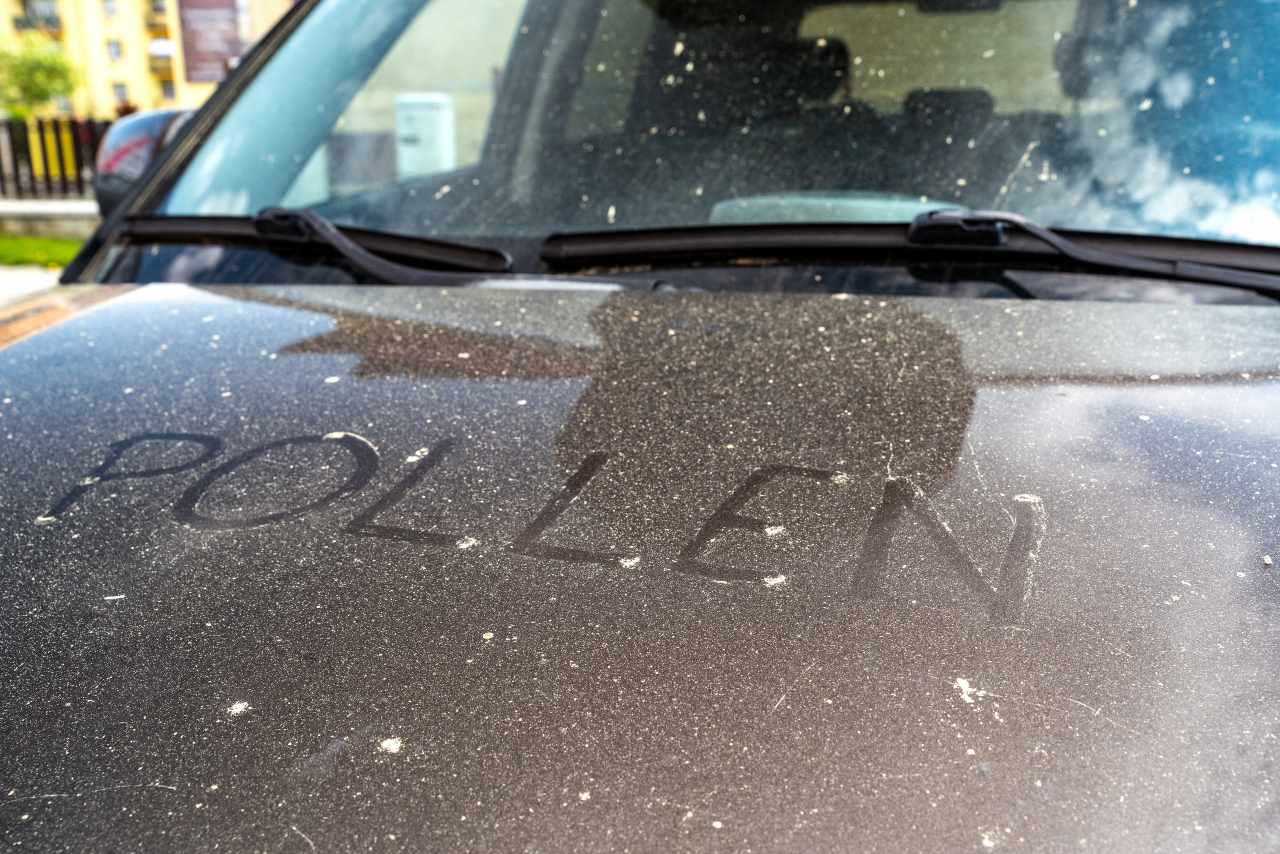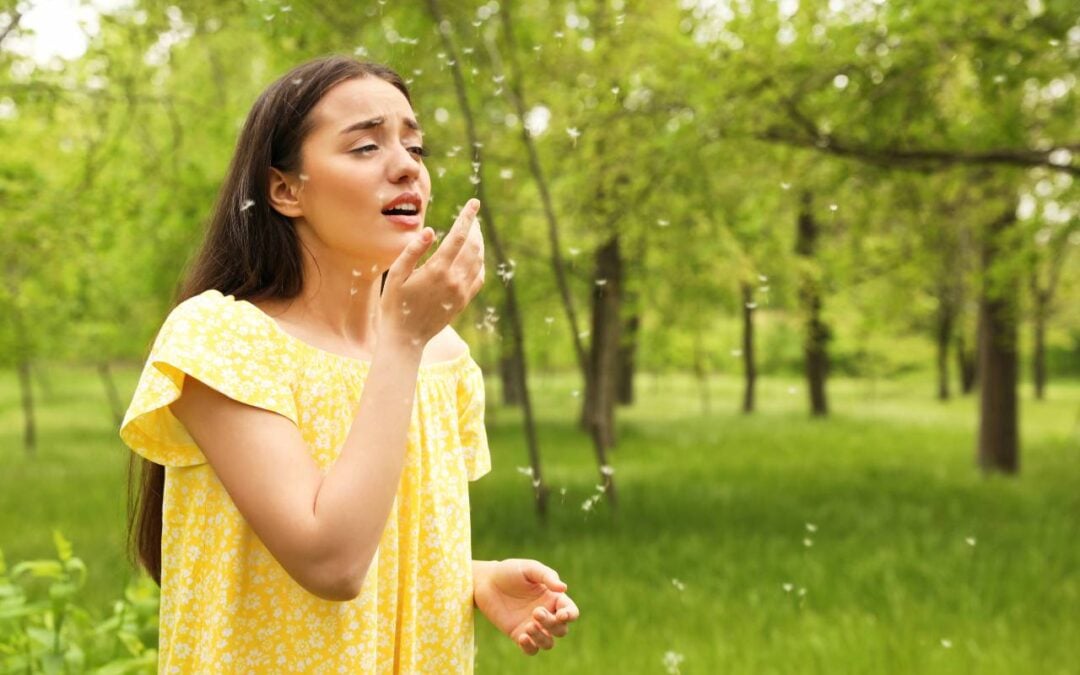Seasonal allergies, also known as hay fever or allergic rhinitis, affect millions of people worldwide. Symptoms like sneezing, itching, runny nose, and watery eyes can make life uncomfortable during certain times of the year. Understanding how to manage these symptoms effectively can significantly improve your quality of life.
Here in Huntsville and Madison, we get the pleasure of peak allergy season in the months of April, May, June, and September with some of us experiencing peak season virtually year-round.
Innova Primary Care understands that allergies are simply no fun. We also have many patients who seek our counsel on how to help alleviate symptoms. Read on for more information about seasonal allergies and tips for managing symptoms here in the Tennessee Valley.

Understanding Seasonal Allergies.
Before diving into treatments, it’s essential to understand what causes seasonal allergies. These allergies occur when your immune system overreacts to allergens such as pollen from trees, grasses, and weeds. The body releases histamines to combat these allergens, leading to the symptoms commonly associated with allergies.
Traditional Treatment Options
Traditional treatments for seasonal allergies primarily focus on managing symptoms and preventing allergic reactions. Here are some common approaches:
Antihistamines
Antihistamines are often the first line of defense against allergy symptoms. They work by blocking histamines, which are chemicals your immune system releases during an allergic reaction. Over-the-counter options like cetirizine (Zyrtec), loratadine (Claritin), and fexofenadine (Allegra) are popular choices. For more severe symptoms, prescription antihistamines may be necessary. It may take some trial and error to discover the right antihistamine for you.
Decongestants
Decongestants can help reduce nasal congestion and sinus pressure. They are available in both pill form and nasal sprays. Common over-the-counter decongestants include pseudoephedrine (Sudafed) and phenylephrine (Sudafed PE). It’s important to note that nasal spray decongestants should not be used for more than a few days in a row to avoid rebound congestion.
Nasal Corticosteroids
Nasal corticosteroids are highly effective in reducing inflammation in the nasal passages, thus alleviating symptoms like congestion and runny nose. These are available over-the-counter and by prescription. Examples include fluticasone (Flonase), mometasone (Nasonex), and budesonide (Rhinocort).
Immunotherapy
For those with severe or persistent allergies, immunotherapy may be an option. This treatment involves exposing the body to gradually increasing amounts of the allergen to build up tolerance. It can be administered through allergy shots or sublingual tablets and drops. It is important to note that you should not attempt immunotherapy on your own. Please work with your allergist to conduct this type of therapy.
Eye Drops
For individuals suffering from itchy, watery eyes, antihistamine eye drops can provide relief. Products like ketotifen (Zaditor) and olopatadine (Pataday) are available over the counter and are effective in reducing eye symptoms.
Safe Alternative Methods
In addition to traditional treatments, many people find relief from seasonal allergies using alternative methods. These approaches can complement conventional treatments or provide standalone relief for mild symptoms.
Saline Nasal Irrigation
Saline nasal irrigation, such as using a neti pot, can help clear nasal passages of allergens and mucus. This method involves rinsing the nasal cavities with a saltwater solution, which can reduce congestion and improve breathing. It’s crucial to use distilled or sterile water to avoid infections.
Herbal Supplements
Certain herbal supplements have shown promise in alleviating allergy symptoms. Butterbur, for instance, is known for its anti-inflammatory properties and can reduce symptoms like nasal congestion and itchy eyes. Stinging nettle is another herb that may help decrease histamine production. Always consult with a healthcare provider before starting any herbal supplements to ensure they are safe and appropriate for you.
Acupuncture
Acupuncture, a traditional Chinese medicine practice, involves inserting thin needles into specific points on the body. Some studies suggest that acupuncture can help reduce allergy symptoms by modulating the immune system and reducing inflammation. If you choose this method, ensure you visit a licensed and experienced practitioner.
Probiotics
Emerging research indicates that probiotics, which are beneficial bacteria for the gut, might play a role in regulating the immune system and reducing allergy symptoms. Probiotics can be found in supplements and fermented foods like yogurt, kefir, and sauerkraut. Incorporating these into your diet may help balance your immune response.
Dietary Changes
Certain dietary adjustments can also support allergy management. Foods rich in antioxidants, such as fruits and vegetables, can help reduce inflammation. Omega-3 fatty acids, found in fish and flaxseeds, have anti-inflammatory properties as well. Additionally, reducing dairy intake might alleviate mucus production for some individuals.
Home Environment Modifications
Making changes in your home environment can significantly reduce exposure to allergens. Here are a few tips:
- Keep windows closed during high pollen seasons to prevent allergens from entering.
- Use air purifiers with HEPA filters to remove airborne particles.
- Clean and vacuum regularly to reduce dust and pollen buildup.
- Wash bedding frequently in hot water to eliminate dust mites.
- Shower and change clothes after spending time outdoors to remove pollen.
Lifestyle Tips for Managing Seasonal Allergies
In addition to treatments, adopting certain lifestyle practices can help manage and reduce allergy symptoms:
Monitor Pollen Counts
Stay informed about daily pollen counts by checking local weather reports or using allergy tracking apps. On days with high pollen levels, try to limit outdoor activities, especially during peak pollen times (early morning and late afternoon).

Stay Hydrated
Drinking plenty of water helps thin mucus and keeps the respiratory system moist, which can alleviate congestion and irritation. Herbal teas, such as peppermint or chamomile, can also be soothing.
Practice Good Hygiene
Washing your hands and face regularly, especially after being outdoors, can help remove allergens. It’s also a good idea to wash your hair before bed to prevent transferring pollen to your pillowcase.
Wear Protective Gear
When performing outdoor tasks like gardening or mowing the lawn, wear sunglasses and a hat to protect your eyes and hair from pollen. A mask can also be helpful to prevent inhaling allergens.
Conclusion
Managing seasonal allergies requires a combination of traditional treatments and alternative methods tailored to your specific needs. By understanding the available options and incorporating lifestyle changes, you can effectively reduce symptoms and enjoy a better quality of life. Always consult with a healthcare professional before starting any new treatment or making significant changes to your health regimen. With the right approach, you can breathe easier and make the most of every season.
If your allergies feel out of control, please do not hesitate to contact us at Innova Primary Care. We have offices in Huntsville and Madison and serve all of North Alabama. We can schedule an appointment with you to discuss options for treatment and refer you to a specialist if need be. Reach out today!
BONUS for us in Huntsville, AL
Seasonal Allergies in Huntsville, AL
Huntsville, Alabama, with its beautiful landscapes and rich vegetation, can be particularly challenging for individuals with seasonal allergies. The region’s climate and diverse plant life contribute to high pollen counts during certain times of the year. Here’s a closer look at what to expect and how to manage seasonal allergies specifically in Huntsville.
Common Allergens in Huntsville
In Huntsville, the primary culprits behind seasonal allergies are tree, grass, and weed pollens. Here’s a breakdown of when these allergens are most prevalent:
- Spring (March to May): Trees like oak, pine, and birch release significant amounts of pollen, leading to increased allergy symptoms.
- Summer (June to August): Grass pollens, including Bermuda and Timothy grass, are at their peak, causing discomfort for many.
- Fall (September to November): Weeds such as ragweed are the main offenders during this season, producing pollen that can travel long distances.
Monitoring Pollen Counts
Keeping an eye on local pollen counts is crucial for managing allergies in Huntsville. Several resources provide daily updates on pollen levels:
- Local Weather Stations: Many local news stations in Huntsville provide daily pollen forecasts.
- Allergy Apps: Apps like Pollen.com and Weather.com offer real-time pollen data specific to the Huntsville area.
- Local Health Departments: The Alabama Department of Public Health often shares information on pollen trends and seasonal alerts.
Outdoor Precautions
When engaging in outdoor activities, take steps to protect yourself from allergens:
- Wear Sunglasses and Hats: These can help keep pollen out of your eyes and hair.
- Shower After Being Outdoors: This helps remove pollen from your skin and hair, reducing indoor contamination.
- Dry Laundry Indoors: Hanging clothes outside to dry can lead to pollen accumulation on fabrics. Dry laundry indoors instead.
Consult Local Allergists
Huntsville has several experienced allergists who can provide personalized care and treatment plans. They can offer services such as allergy testing and immunotherapy, tailored to the specific allergens prevalent in the area.
Natural Remedies
In addition to traditional treatments, several natural remedies can be particularly effective in Huntsville:
- Saline Nasal Rinse: Using a saline rinse can help clear nasal passages of pollen and reduce congestion.
- Local Honey: Some residents find that consuming local honey may help build a tolerance to local pollen, though scientific evidence on its effectiveness is limited.
Conclusion
Seasonal allergies in Huntsville, AL, can be challenging, but with the right strategies, you can manage symptoms effectively. By staying informed about local pollen counts, taking preventive measures, and consulting with healthcare providers, you can reduce the impact of allergies on your daily life. Embrace both traditional and natural methods to find the best approach for your needs, and enjoy the beauty of Huntsville year-round.



 About
About

 About
About About
About About
About
 About
About About
About

 About
About About
About About
About About
About











